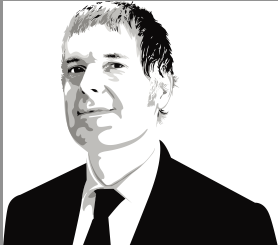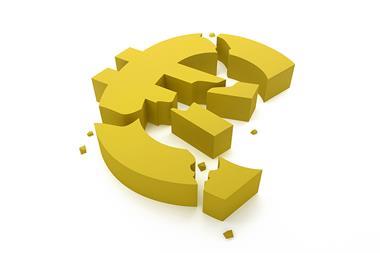One way for risk managers to try to predict the future is to take an intelligent look back at history
The ability to make the right decision when faced with a wide array of often disparate information is one of the keys to successful risk management. Analytics aside, being able to look beyond the maelstrom of data and assess what might happen in the days, weeks, months or years ahead is where the real skill lies for many.
It is, of course, impossible to predict the future accurately. If it was, the gambling industry, among others, would have been long since wiped out. That those operating in the betting business continue to prosper unencumbered by the prospect of universal gambler success is testament to our inability to make truly accurate predictions, even after enlisting the help of powerful computing methods.
Forecasting the future is an imprecise science. There is no crystal ball for risk managers, or others, that can offer any degree of absolute certainty absolutely. Much of this is because of the complexity and volume of variables involved with any single event - whether random or expected.
Factoring in the variables
Even those variables connected with something as relatively straightforward as a race between two horses are sufficient to rule out guaranteed predictive accuracy. A champion thoroughbred would most likely triumph against a shire horse 99 times out of 100. But factor in illness, uneven ground, temperament, the weather, nerves and already it is apparent that certainty can never be certain.
Simplify this still further and even a horse running by itself cannot be assured of passing the winning post - it could fall or even run in the wrong direction. Extrapolate this to real-world decisions for businesses and the scope for variable calculations widens enormously.
Indicators, however, are everywhere; choosing the right ones is crucial.
One way for risk managers to look forward is to look back into history. Learning from the past can help make more informed judgments about the future - allowing decision-makers to factor in or add greater weight to certain issues.
The past will not tell you what will happen in the strictest sense. It can offer an indication of what might occur, but such judgments need to be made in the right context. History can make businesses and risk managers more prepared for what lies ahead, provided it is analysed the correct way.
Eurozone uncertainty
For example, the crisis gripping the eurozone continues to cause economic havoc for those countries affected both directly and indirectly. Much of this is down to uncertainty about what will happen next. Will Greece exit the single currency? How many more countries will seek bail-out assistance? How much longer can the eurozone’s strongest member, Germany, continue to support its weaker neighbours?
A look back at recent history can chart the chaos within the eurozone and its origins, while giving pointers to what could come next.
Perhaps the problem is too recent for some to consider in a historical context - particularly as it is ongoing. If that is the case, go back instead to September 1992 and Black Wednesday, which saw the UK’s departure from the European exchange rate mechanism, soaring interest rates and a currency in freefall.
In this way we can see how and why certain events took place, but how that information is used to plan ahead needs some consideration. The most important aspect to bear in mind when assessing lessons from the past is to consider the context.
History is often viewed as a single entity - one event rather than a series of incidents and occurrences. To truly learn lessons of the past we need to take each individual event and occurrence and consider the decision process, where appropriate, behind that before moving on to the next. Ask yourself why did this happen, why was this action taken, what options - if any - were available to decision-makers at
the time? That way we can build an overall picture of objectivity that will let us use history to help with the future.
Without understanding better the processes that shaped events, history becomes hindsight.
Using history more intelligently will still never guarantee future certainty, but it may teach us not to look back in anger.
Mike Jones, Editor, StrategicRISK




















No comments yet